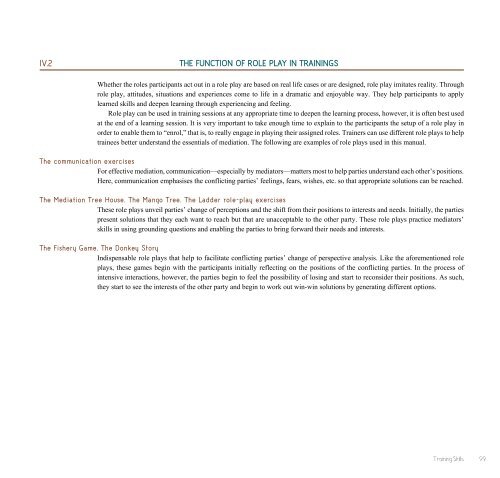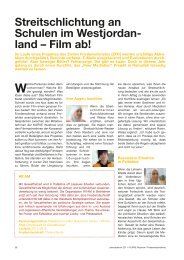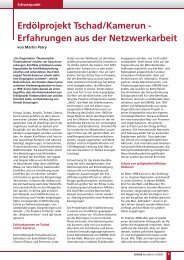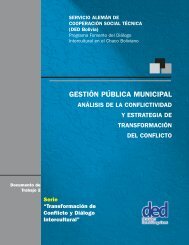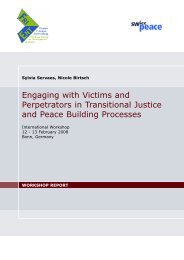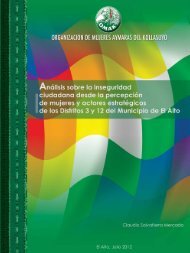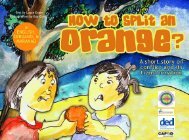Merging Ethiopian Wise-Counsel Mediation and Facilitative ...
Merging Ethiopian Wise-Counsel Mediation and Facilitative ...
Merging Ethiopian Wise-Counsel Mediation and Facilitative ...
- No tags were found...
You also want an ePaper? Increase the reach of your titles
YUMPU automatically turns print PDFs into web optimized ePapers that Google loves.
Iv.2The Function of Role Play in TrainingsWhether the roles participants act out in a role play are based on real life cases or are designed, role play imitates reality. Throughrole play, attitudes, situations <strong>and</strong> experiences come to life in a dramatic <strong>and</strong> enjoyable way. They help participants to applylearned skills <strong>and</strong> deepen learning through experiencing <strong>and</strong> feeling.Role play can be used in training sessions at any appropriate time to deepen the learning process, however, it is often best usedat the end of a learning session. It is very important to take enough time to explain to the participants the setup of a role play inorder to enable them to “enrol,” that is, to really engage in playing their assigned roles. Trainers can use different role plays to helptrainees better underst<strong>and</strong> the essentials of mediation. The following are examples of role plays used in this manual.The communication exercisesFor effective mediation, communication—especially by mediators—matters most to help parties underst<strong>and</strong> each other’s positions.Here, communication emphasises the conflicting parties’ feelings, fears, wishes, etc. so that appropriate solutions can be reached.The <strong>Mediation</strong> Tree House, The Mango Tree, The Ladder role-play exercisesThese role plays unveil parties’ change of perceptions <strong>and</strong> the shift from their positions to interests <strong>and</strong> needs. Initially, the partiespresent solutions that they each want to reach but that are unacceptable to the other party. These role plays practice mediators’skills in using grounding questions <strong>and</strong> enabling the parties to bring forward their needs <strong>and</strong> interests.The Fishery Game, The Donkey StoryIndispensable role plays that help to facilitate conflicting parties’ change of perspective analysis. Like the aforementioned roleplays, these games begin with the participants initially reflecting on the positions of the conflicting parties. In the process ofintensive interactions, however, the parties begin to feel the possibility of losing <strong>and</strong> start to reconsider their positions. As such,they start to see the interests of the other party <strong>and</strong> begin to work out win-win solutions by generating different options.Training Skills99


